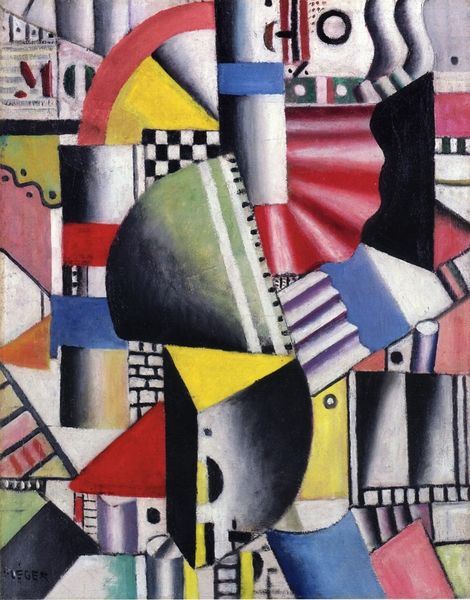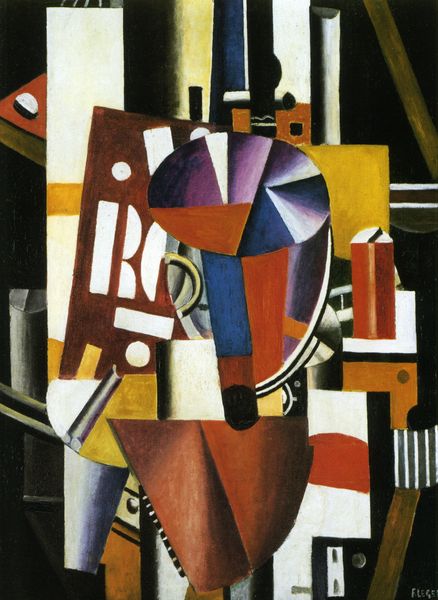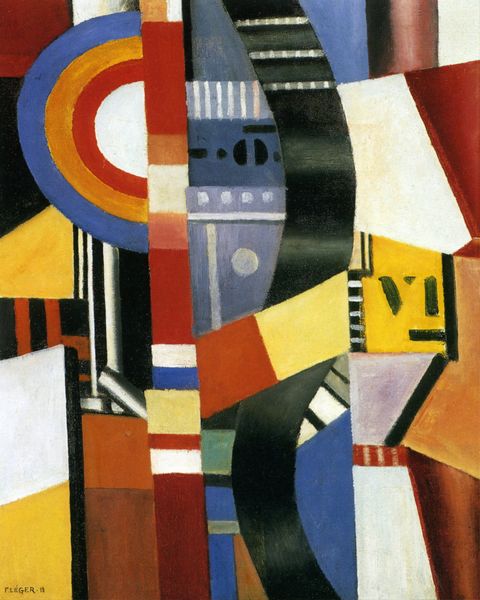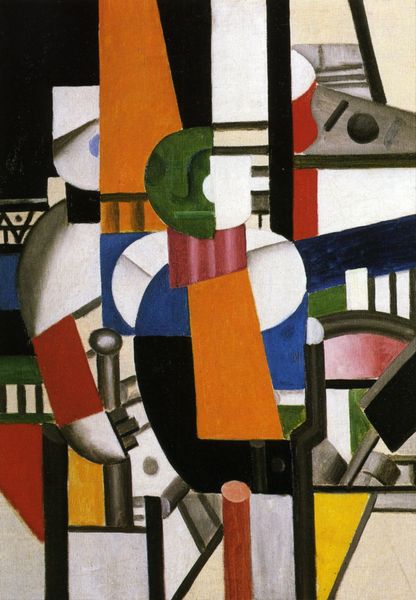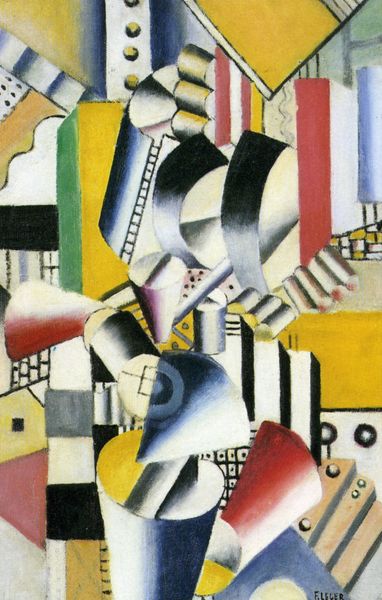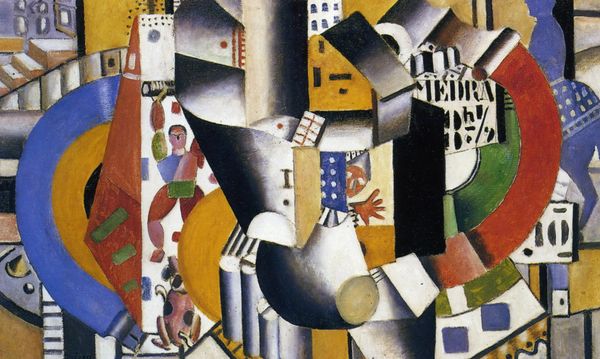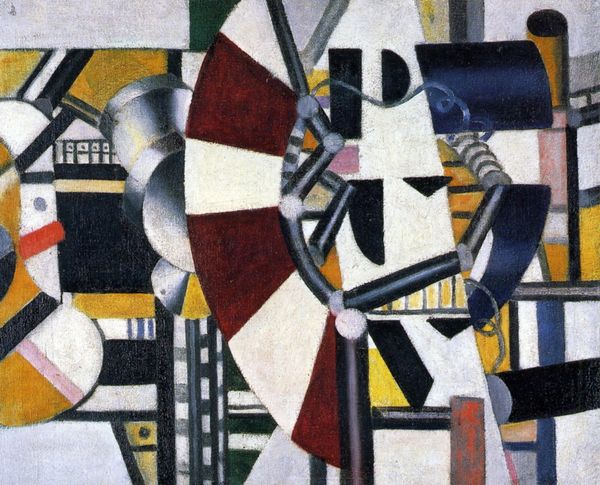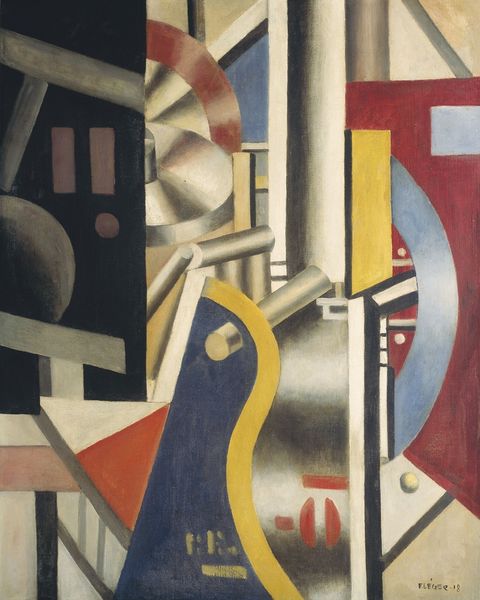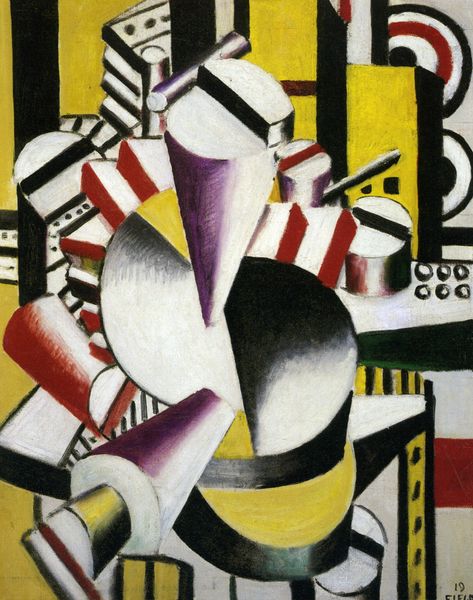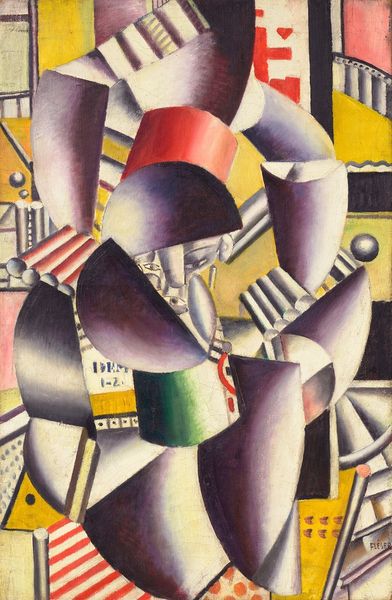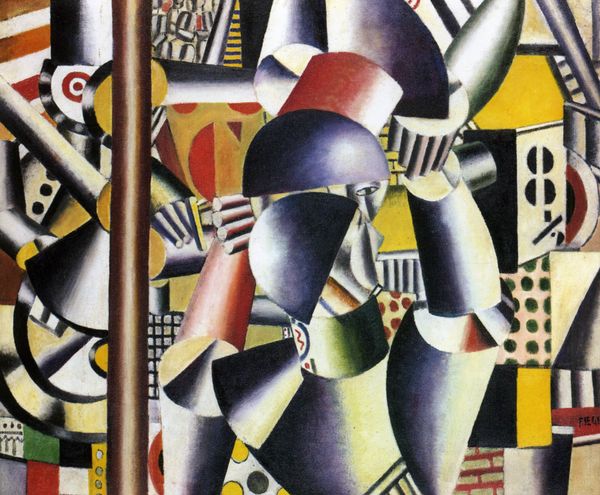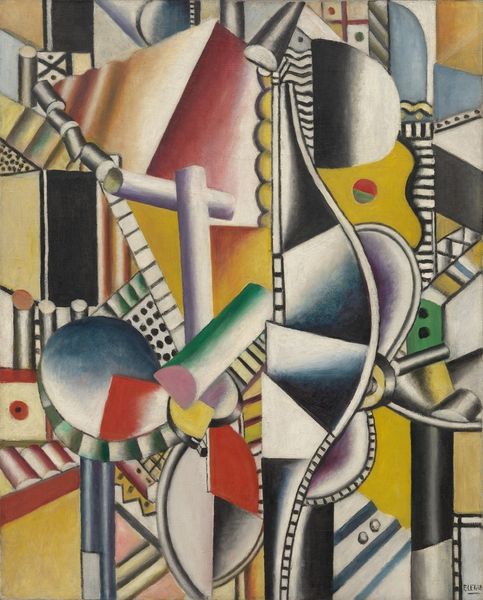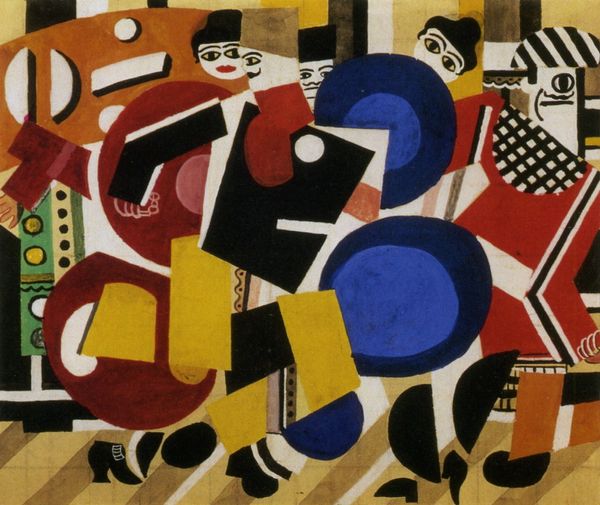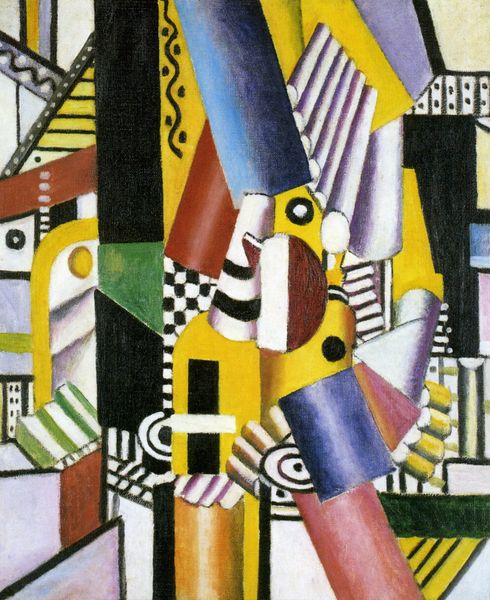
oil-paint
#
cubism
#
oil-paint
#
oil painting
#
geometric
#
modernism
Copyright: Public domain US
Editor: We're looking at Fernand Léger’s “Still Life” from 1919, created using oil paint. At first glance, I see a dynamic arrangement of geometric shapes; it’s quite striking but also somewhat…disorienting. What do you see in this piece? Curator: Immediately, the assertive geometry commands attention. Notice how Léger employs overlapping forms – cylinders, cones, rectangles – to create spatial ambiguity. The vibrant palette, juxtaposing primary hues with softer tones, further enlivens the composition. Semiotically, each shape functions as a signifier, yet their relationship resists definitive interpretation, pushing viewers towards a subjective, purely visual engagement. Editor: It feels almost machine-like, but not quite. The shapes suggest recognizable forms, but they are fractured and reassembled in unexpected ways. Curator: Precisely. The “tubism” that Léger advanced aimed to dissect reality into its essential components, thereby restructuring vision itself. Note how light is treated not as illumination, but as another element for structural exploration. What is the relationship between these mechanical shapes and our experience of beauty? Editor: So, it’s less about representing objects and more about exploring the fundamental elements of visual language? How all those shapes work together? Curator: Indeed. Focus on the dialogue between line, color, and volume. Léger presents us with a self-contained pictorial world, autonomous from external reference. Editor: This has definitely changed how I see it. It’s less about “what” it is and more about “how” it is. The structure itself is the subject. Curator: Yes. Through visual reduction, Léger encourages viewers to engage with art on a purely formal level. That gives viewers total freedom.
Comments
No comments
Be the first to comment and join the conversation on the ultimate creative platform.
